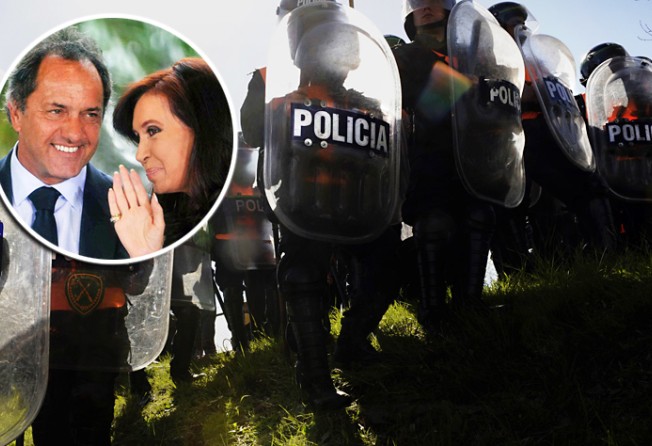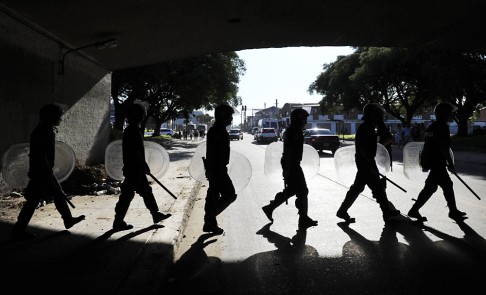
Rising crime in Argentina sparks wave of lynch mobs, dividing the public
Failure of police response to worst robbery rate in Latin America sparks wave of vigilantism

Argentina has been shaken by a recent wave of incidents of mob "justice", underscoring public frustration with rising crime and ineffectual police work.

"They kill, they rape, they rob. What do you expect?" said 64-year-old Jose Villalba, the superintendant of a building in downtown Buenos Aires, expressing sympathy with the vigilantes. "I don't think I would go to such an extreme, but you'd have to see the circumstances," he said.
So far, one person has died in the mob attacks, an 18-year-old who was beaten to death after a purse snatching in a poor part of the city of Rosario, 300 kilometres north of Buenos Aires. His family insists he was innocent.
Reports of mob justice have surged in the past two weeks in places like Buenos Aires's upscale Palermo neighbourhood and five provinces.
"To lynch is to return to barbarism," said Ariel Billordo, a 29-year-old systems analyst.
But a survey by pollster Aragon y Asociados published on Monday found that nearly 30 per cent of the population of Buenos Aires was in favour of violence against lawbreakers.
The country's political leaders are taking note.
The governor of Buenos Aires province, Daniel Scioli, has declared a state of emergency in his jurisdiction, where 16 million of Argentina's 40 million people live.
Scioli, an ally of President Cristina Fernandez de Kirchner and a favourite to run as president in 2015, announced plans to buy patrol cars and rehire 5,000 retired police officers to increase the size of a force that numbers 72,000.
Sergio Massa, an opposition deputy who also is likely to run for president, said the public's taking matters into its own hands was justified in light of "the absence of the state" in fighting crime.
"Each one tries to capitalise on the problem. But insecurity has taken a more complex turn with the lynchings," said Mariel Fornoni, an analyst with Management and Fit consulting.
The consultancy says 84 per cent of the population believes insecurity has increased, which makes it the opposition's most exploitable issue in next year's elections.
Sociologist Guillermo Perez Sosto agrees. "Part of the population lost faith in the state. There is a feeling that they've been abandoned," says Perez Sosto, who heads the Instituto Torcuato Di Tella think tank.
Argentina has not published crime statistics since 2009, when the country had the highest rate of robberies in Latin America - 974 per 100,000 inhabitants - despite a low murder rate.
"Drugs is what has to be stopped," said Jaime Meza, a 58-year-old messenger. But what to do about it posed a dilemma, he added. "To lynch is to become a murderer. You can't have confidence in the police because there is a lot of corruption."
Meza's dim view of law enforcement is shared by many Argentines. The Aragon y Asociados survey found that 73.8 per cent of those polled believe there is a relationship between politics and drug trafficking, while 78.7 per cent believe some police are involved with drug traffickers.
The poll, carried out this month in the Buenos Aires metropolitan area, also found that 38.4 per cent feel that people have the right to organise and arm themselves in self-defence if the government is unable to control crime; 54.7 per cent of respondents disagreed.
